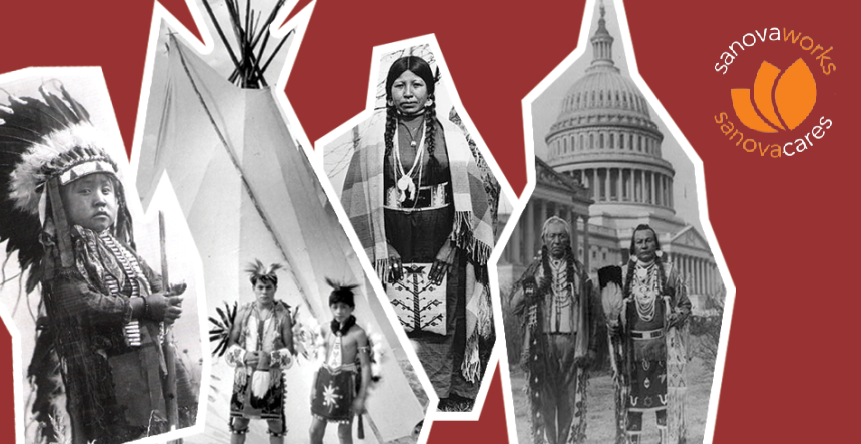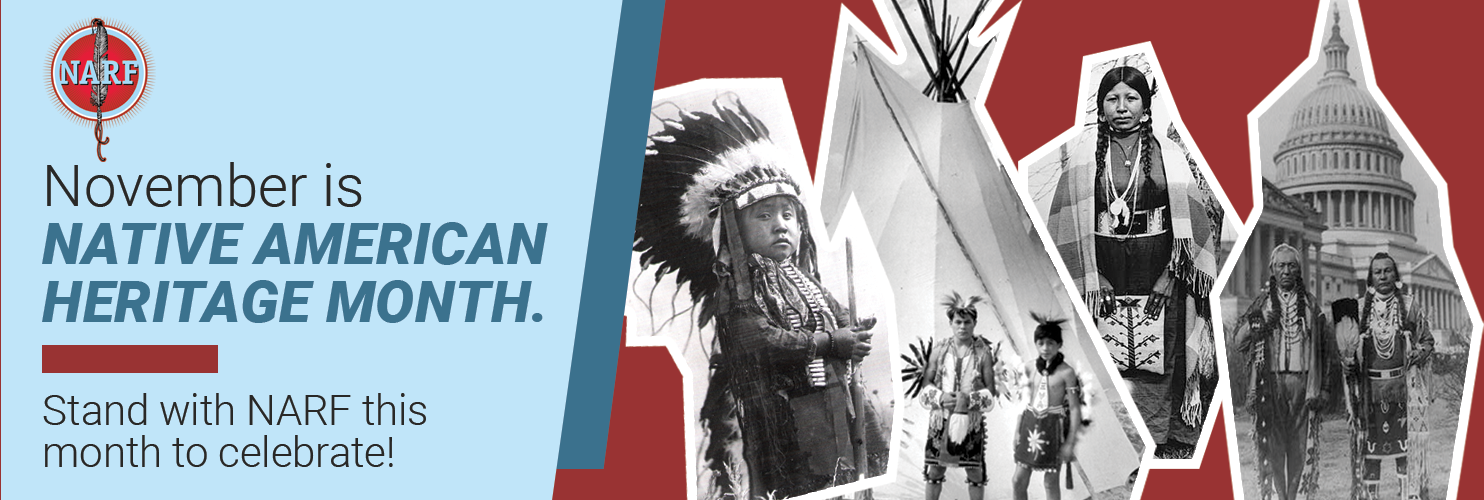NEW YORK, (November 7, 2021) – Caroline Barrett, SanovaWorks Vice President of Operations
Native American People have inhabited the land that we love and live on for thousands of years. Their countless contributions and influence on our Nation have not always been honored. Most recently, it has been reported that the COVID-19 pandemic has affected Native Americans at higher rates. Together we recognize, celebrate, and vow to promote and protect the rights, tribal sovereignty, and natural resources of Native American People. We hope to share in the public’s education of tribal rights, laws, and issues. November is National Native American Heritage Month and November 26, 2021, is Native American Heritage Day.
National Native American Heritage Month
Native American Heritage Day, November 26, 2021
In his official Proclamation from the White House Briefing Room, President Biden states:
“The United States of America was founded on an idea: that all of us are created equal and deserve equal treatment, equal dignity, and equal opportunity throughout our lives. Throughout our history — though we have always strived to live up to that idea and have never walked away from it — the fact remains that we have fallen short many times. Far too often in our founding era and in the centuries since, the promise of our Nation has been denied to Native Americans who have lived on this land since time immemorial. Despite a painful history marked by unjust Federal policies of assimilation and termination, American Indian and Alaska Native peoples have persevered.
During National Native American Heritage Month, we celebrate the countless contributions of Native peoples past and present, honor the influence they have had on the advancement of our Nation, and recommit ourselves to upholding trust and treaty responsibilities, strengthening Tribal sovereignty, and advancing Tribal self-determination.“
SanovaWorks Supports Native American Rights Fund
In honor of National Native American Heritage Month, SanovaWorks supports the Native American Rights Fund (NARF). NARF’s mission is to protect Native American rights, resources, and lifeways through litigation, legal advocacy, and legal expertise.
Native American Rights Fund
The Native American Rights Fund (NARF) was founded in 1970. NARF is the oldest and largest nonprofit legal organization “asserting and defending the rights of Indian tribes, organizations, and individuals nationwide.”
According to the organization’s website, NARF’s legal resources are concentrated in these five areas:
- Preserve tribal existence,
- Protect tribal natural resources,
- Promote Native American human rights,
- Develop Native American law and educate the public about Indian rights, laws, and issues
- Hold governments accountable to Native Americans
Preserve tribal existence
“American Indian and Alaska Native tribes have existed for thousands of years. NARF’s foremost priority is to protect and secure continued tribal existence. NARF focuses on preserving tribes’ sovereignty — their political status and legal rights as governments”.
Protect tribal natural resources
“The political and economic self-determination and self-sufficiency of most tribes depend on maintaining their land and natural resources. Much of NARF’s work under this priority involves helping tribes to safeguard their land rights; water rights; hunting, fishing, and gathering rights; resource rights; and environmental rights.”
Promote Native American human rights
“NARF concentrates on enforcing laws regarding rights to equal protection and to be free from discrimination in voting, education, incarceration, and religion. NARF also helps develop laws that provide unique protections for Native collective rights, traditions, culture, and property such as sacred places, peyote, eagle feathers, burial remains, and funerary objects. NARF’s human rights work includes international forums like the United Nations and the Organization of American States.”
Hold governments accountable to Native Americans
“Non-tribal governments often threaten to eliminate or compromise the hard-fought-for or bargained-for political status and legal rights of tribes. NARF strives to hold governments at all levels accountable for the broad range of laws that protect tribal sovereignty and Native rights. The United States, in particular, must be responsible to tribes for its legal promises, moral obligations, and past detrimental policies.”
Develop Native American law and educate the public about Indian rights, laws, and issues
“NARF [plays] a key role in developing a body of federal law pertaining to tribal sovereignty, tribal land, and natural resources, human rights, and the accountability of governments to Native people.”
You can donate to the NARF here.
Resources
A Proclamation on National Native American Heritage Month, 2021
Native American Heritage Month | About
A collaborative project of the Library of Congress and the National Endowment for the Humanities, National Gallery of Art, National Park Service, Smithsonian Institution, United States Holocaust Memorial Museum and U.S. National Archives and Records Administration.


